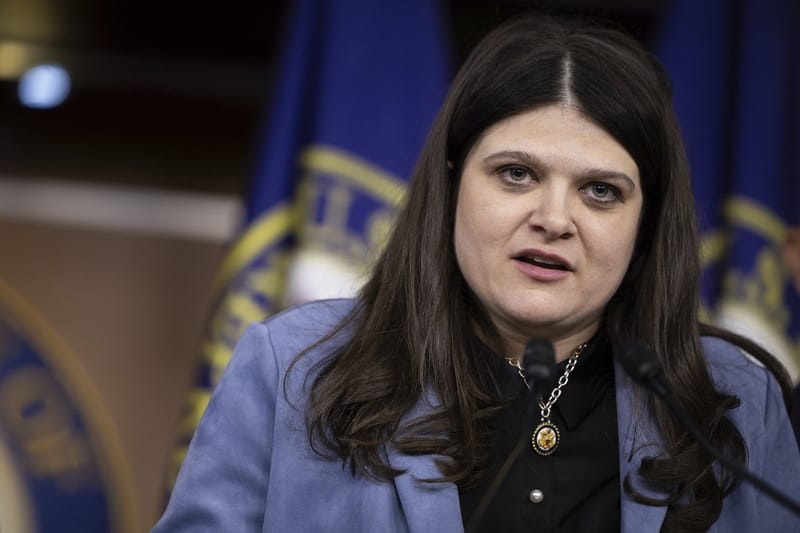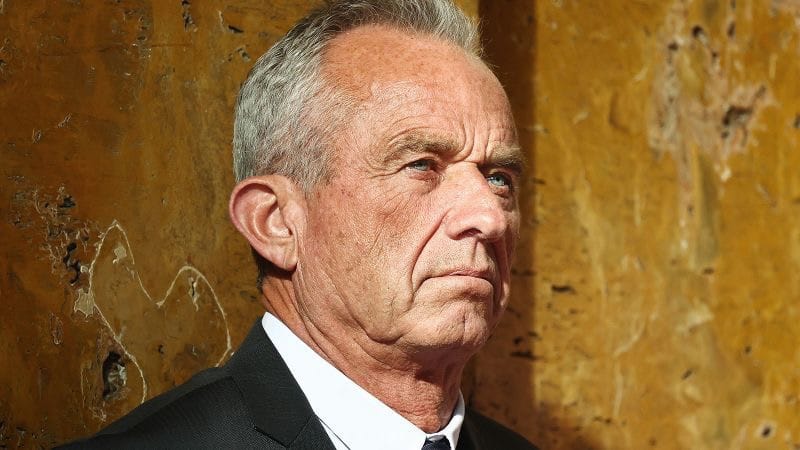RFK Jr. Vows to End Chemtrails on Dr. Phil, Signals Growing Public Concern Over Geoengineering
As States Push to Ban Aerosol Spraying and the UK Funds Sun-Dimming Experiments, Questions Mount About the Safety of Atmospheric Interventions WASHINGTON D.C. - In a striking appearance on Dr. Phil’s Primetime show on April 28, 2025, U.S. Health and Human Services Secretary Robert F. Kennedy Jr.

As States Push to Ban Aerosol Spraying and the UK Funds Sun-Dimming Experiments, Questions Mount About the Safety of Atmospheric Interventions
WASHINGTON D.C. - In a striking appearance on Dr. Phil’s Primetime show on April 28, 2025, U.S. Health and Human Services Secretary Robert F. Kennedy Jr. pledged to tackle the controversial issue of “chemtrails,” alleging that the Defense Advanced Research Projects Agency (DARPA) is behind the spraying of substances like aluminum, strontium, and barium into the atmosphere. Responding to an audience member named Emily, who raised concerns about daily “stratospheric aerosol injections,” Kennedy declared, “It’s done, we think, by DARPA. I’m gonna do everything in my power to stop it.” He further committed to appointing a dedicated official to focus solely on halting these activities, marking a significant escalation in his long-standing crusade against geoengineering.
Kennedy’s remarks come amid growing public awareness of unusual aerial trails, often dismissed as contrails but increasingly viewed by some as evidence of covert geoengineering. Social media platforms like X have amplified these concerns, with posts highlighting persistent, spreading trails that create hazy skies. One user recently wrote, “Are you missing the sun yet where you are?” reflecting a sentiment that artificial cloud cover is becoming harder to ignore. This shift in perception is not limited to fringe groups; mainstream voices, including Kennedy, are now openly addressing what many call a “crime against humanity.”
🚨RFK Jr. addresses the chemtrail issue on Dr. Phil:
— Died Suddenly (@DiedSuddenly_) April 29, 2025
"We will do everything we can to stop it, we are bringing someone in who will think only about that" pic.twitter.com/bBiDf6OvT9
The chemtrail debate is also gaining traction in U.S. state legislatures, where lawmakers are responding to constituent fears about environmental and health impacts. In Florida, the Senate passed SB 56 on April 3, 2025, by a 28-9 vote, banning the “injection, release, or dispersion” of chemicals or substances into the atmosphere to affect weather, climate, or sunlight intensity. Violators face third-degree felony charges and fines up to $100,000. Similar bills are advancing in states like Tennessee, Iowa, and Texas, with at least 24 states reportedly considering restrictions on geoengineering practices. These legislative efforts reflect a belief among some that aerosol spraying, whether for weather modification or solar radiation management, poses risks to public health and ecosystems. Kennedy has praised these moves, stating on X that they align with his “Make America Healthy Again” movement.
Meanwhile, across the Atlantic, the United Kingdom has taken a different approach, embracing geoengineering as a tool to combat climate change. On April 22, 2025, the UK announced a £50 million government-funded program to conduct outdoor geoengineering experiments, including techniques to block sunlight by injecting reflective particles into the atmosphere or brightening clouds with seawater sprays. Described by some as “dimming the sun,” these efforts aim to temporarily lower surface temperatures, buying time for carbon emission reductions. The Guardian reported that such methods could mitigate climate crisis harms, but critics warn of unintended consequences, such as disrupted rainfall patterns critical for agriculture. Kennedy responded sharply to the UK’s initiative, calling it a “mass uncontrolled experiment” and vowing to “bring justice” to those responsible for similar practices globally.
RFK Jr. recently sat down with Dr. Phil, and he stunned the audience when a woman named Emily asked him point-blank about the toxic aerosols being sprayed over us every day.
— The Vigilant Fox 🦊 (@VigilantFox) April 29, 2025
My biggest concern is the stratospheric aerosol injections that are continuously peppered on us every… pic.twitter.com/w3C3eRiHh8
The health and environmental impacts of aerosol spraying remain a contentious issue, shrouded in uncertainty. Proponents of geoengineering argue that substances like aluminum or sulfur dioxide, when dispersed in the stratosphere, reflect sunlight to cool the planet without significant harm. However, skeptics, including Kennedy, cite potential links to conditions like Alzheimer’s (from aluminum exposure) and respiratory issues, though robust scientific evidence is lacking. A 2021 National Academies report acknowledged that stratospheric aerosol injection could alter climate patterns and stressed the need for more research into its ecological effects. Critics also point to the lack of transparency, noting that standard EPA air quality monitors may not detect nanoscale particles allegedly used in spraying
As public skepticism grows, the divide between geoengineering advocates and opponents is widening. In the U.S., state-level bans signal a rejection of atmospheric interventions, driven by fears of “toxins” raining down on communities. In contrast, the UK’s investment in solar dimming reflects a willingness to experiment with controversial technologies, even as scientists admit the long-term consequences are unknown. Kennedy’s high-profile pledge on Dr. Phil has thrust this issue into the national spotlight, galvanizing those who believe the skies are being manipulated at humanity’s expense. Whether his efforts will lead to federal action remains unclear, but for now, the battle over what’s in the air is heating up.



